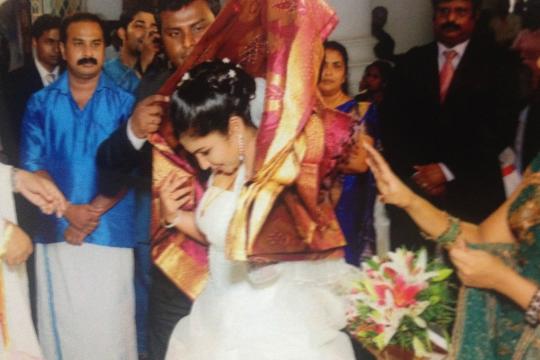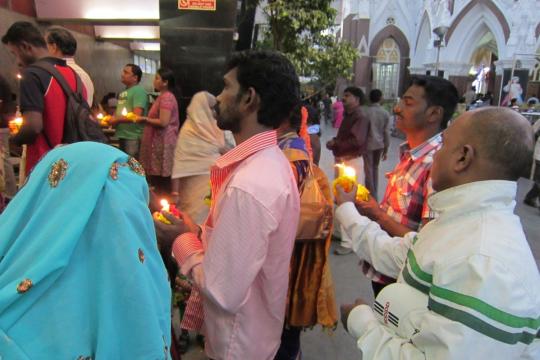Almost all Catholics in India are natives, and India has its own native clergy in abundance, so Indian Catholics do not have significant foreign born communities to integrate. At the same time, mobility within India, and migration out of India, is having some effect on Catholicism in many parts of the country, mostly among the upper and middle classes, who are most connected into the world abroad. Family structures seem resistant to evolving norms abroad, but Indians are aware of different values from other parts of the world, even as they prefer to choose their own path. The biggest changes come when family members move abroad temporarily for work opportunities.
In Kerala, out-migration plays a significant role in the lives of Catholics. Families commonly have at least one family member living abroad for employment purposes, particularly in the Gulf States, but also in Europe, other parts of India, and other parts of the world. Kerala is the best educated state in India, and through Catholic schools, Keralite Catholics have a strong start on English, nursing, and other skills that serve them well in the global marketplace. Even middle-class families have their feet in several worlds, quite literally.
Kerala towns like the coastal areas around Veli and Thumba, just north of Thiruvananthapuram, are being notably transformed by the remittance funds sent back by migrants. Houses have become significantly bigger and more luxurious in recent years, and so have churches. The Madre de Deus church at Vettucaud recently demolished its relatively large church and is currently building an enormous one on the property. St. Thomas Church and St. Peter's Church, less than 10 minutes up the coast, were also rebuilding lavishly. Many of these churches make repeated visual references to Roman institutions and are the products, architecturally and financially, of the geographic mobility of local Catholics.
Clergy and religious communities from Kerala are also migrating at a rapid pace, being sent as missionaries to serve in parishes and Catholics around the world, often, but not exclusively, in service to Indian migrant communities.
The extended family structure in Kerala means that children are often cared for by aunts, uncles and cousins. Unusually strong family networks and social institutions can help with this, but in interviews, Catholics talked of the strain this puts on families. Whereas elderly parents were once cared for by children who stayed home but who now may be abroad, the number of nursing homes (many run by nuns) has also begun to grow, marking a significant cultural shift.









